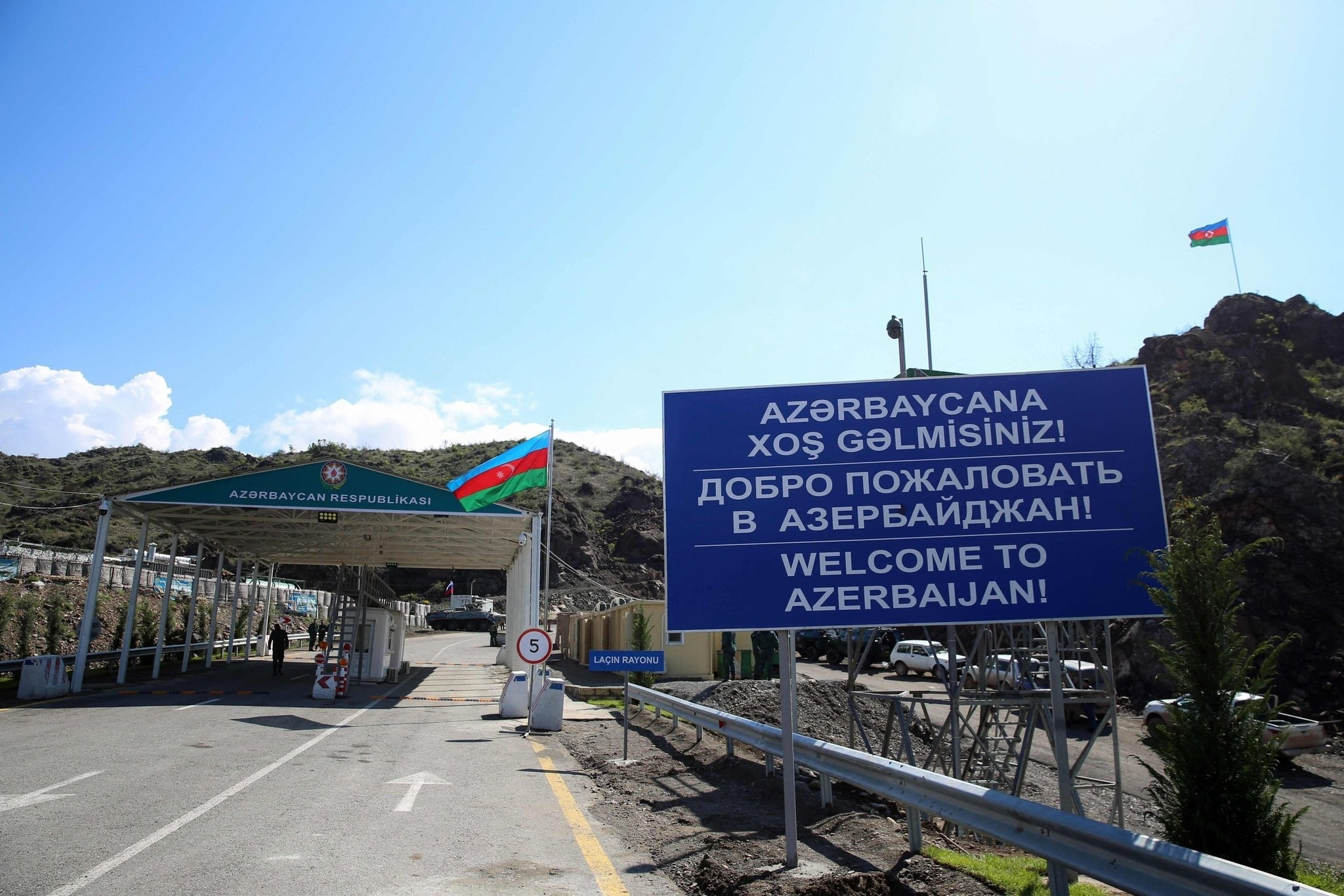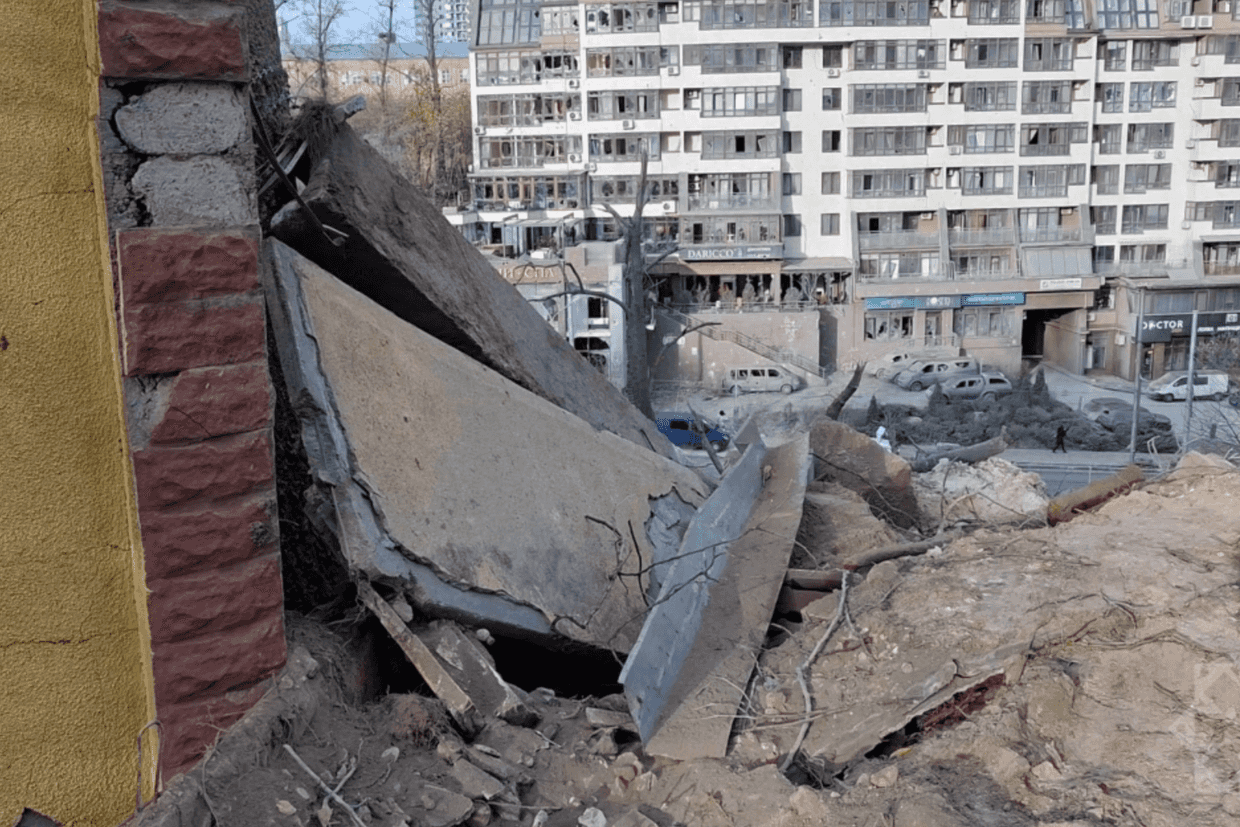
Azerbaijan has blocked access of Red Cross vehicles to Nagorno-Karabakh after claiming they had been used to ‘smuggle’ mobile phones, cigarettes, and fuel into the region, putting Nagorno-Karabakh under a full blockade.
Azerbaijan’s State Border Service announced early on Tuesday that Red Cross vehicles were temporarily blocked from transferring patients from Nagorno-Karabakh to hospitals in Armenia as a result.
‘Although the ICRC [Red Cross] was warned about this through official channels, the illegal actions continued, and the necessary steps were not taken to prevent them’, the statement claimed.
It added that a criminal case had been opened regarding the allegations of smuggling, and that passage through the checkpoint had been suspended ‘until necessary investigative measures have been completed’.
The statement claimed that between 1–5 July, vehicles passing through the checkpoint were found to be carrying 15 ‘undeclared’ mobile phones, a selection of mobile phone parts, 800 packs of cigarettes and 320 litres of petrol, and 125 packs of cigarettes and 1,000 litres of petrol.
The statement also included the names of the vehicles’ drivers, their license plate numbers, and the drivers’ passport numbers.
The Azerbaijani government requires those entering Nagorno-Karabakh from Armenia to declare all goods they are carrying. Since traffic has been almost entirely limited to Russian peacekeeping vehicles and the Red Cross since December 2022, access to many goods, including mobile phones, cigarettes, and fuel, has been severely limited.
Azerbaijani authorities have suggested that goods instead be transported directly from Azerbaijan to Nagorno-Karabakh.
The Red Cross issued a statement on Tuesday, saying that it was aware of concerns raised regarding transport of ‘unauthorised’ goods, and did not support such activity.
‘No unauthorised material has been found in any vehicle belonging to the ICRC. All cargo is subject to customs checks by the Republic of Azerbaijan’, the official statement said.
However, the statement noted that four drivers hired by the organisation had, without their knowledge, attempted to transport commercial goods in vehicles that were temporarily displaying the ICRC emblem.
‘These individuals were not ICRC staff members and their service contracts were immediately terminated by the ICRC’, the Red Cross said, adding that the organisation’s operation in the region ‘must be allowed to continue’.
Since the statement, Azerbaijani pro-government media has begun to publish anti-Red Cross editorials, accusing them of being controlled and financed by ‘Armenians and their […] patrons in the West and Russia’ and of having an ‘anti-Azerbaijani’ stance.
Report.az called for the Armenian Red Cross’s activity in Nagorno-Karabakh to be terminated, claiming the organisation had ‘violated international norms and provided comprehensive support to the enemy’.
Neither Armenia nor Nagorno-Karabakh have issued an official response to the news.
Since Azerbaijan installed a checkpoint at the entrance to the Lachin Corridor, the sole route connecting Nagorno-Karabakh to the outside world, Azerbaijan has controlled traffic in and out of the region, which has been mainly limited to Red Cross and Russian peacekeeping vehicles.

Their access to the region was suspended on 15 June, after Azerbaijani and Armenian forces exchanged fire. Russian peacekeeper vehicles have been denied access to the region since then, leaving it facing shortages of staple foods and fuel.
[Read more: Food shortages and fear as peacekeepers refused entry to Nagorno-Karabakh]
Red Cross access was restored in late June, to facilitate the transfer of people needing medical assistance to hospitals in Armenia, after Azerbaijan’s foreign minister, Jeyhun Bayramov, met with the head of the Red Cross in Azerbaijan.
During that meeting, Bayramov suggested that Azerbaijan could meet ‘other supply needs’ of the region via a road connecting Aghdam, in western Azerbaijan, to Stepanakert.
Gas and electricity supply
Since the beginning of the Lachin Corridor blockade, the region has also faced intermittent cuts to its electricity and gas supply. Gas and electricity were previously supplied to the region from Armenia through conduits passing through Azerbaijani-controlled territory.
On 9 July, the gas supply was restored after a four-month cut, but was suspended again less than 24 hours later.
After the gas supply ceased, multiple Azerbaijani pro-government media outlets published editorials stating that Nagorno-Karabakh’s population had no alternative but to accept integration into Azerbaijan.
An editorial on Qafqazinfo.az explicitly stated that the gas restoration and cut was intended to show the region’s Armenian population that they would be provided with ‘everything’ if they integrated into Azerbaijan and that the Nagorno-Karabakh authorities were obstructing this process.
Azerbaijan has repeatedly officially denied its responsibility for the gas cuts, noting that the gas supply comes from Armenia.
External electricity supply to the region has been fully suspended since January, after damage to a cable supplying the region with electricity from Armenia. The region has since relied on its limited capacity to produce electricity through hydropower, further limited by low rainfall.
[Read more: Energy crisis looms in Nagorno-Karabakh as reservoir levels fall]
Nagorno-Karabakh authorities have banned sale of fuel to civilians, saving stored supplies for emergency use.
For ease of reading, we choose not to use qualifiers such as ‘de facto’, ‘unrecognised’, or ‘partially recognised’ when discussing institutions or political positions within Abkhazia, Nagorno-Karabakh, and South Ossetia. This does not imply a position on their status.








